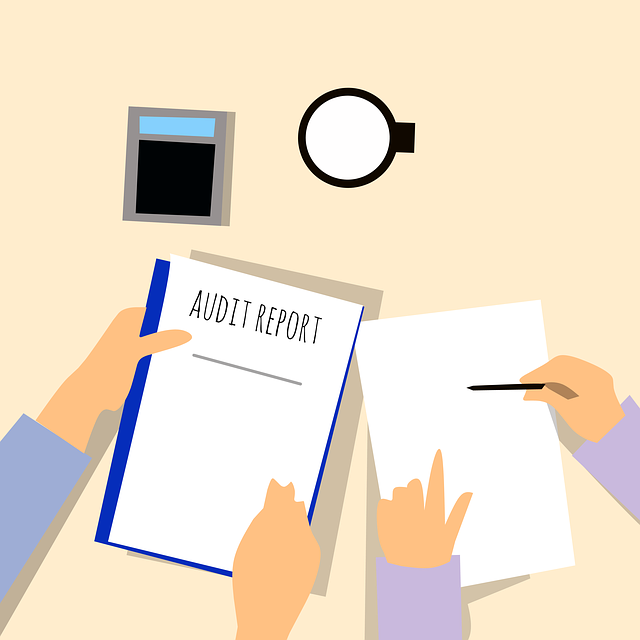Conducting a Comprehensive SEO Audit involves focusing on three core aspects: technical health, content quality, and user experience. This includes evaluating site structure, internal linking, technical issues like loading times and mobile-friendliness, content strategy, keyword optimization, duplicate content, backlink profile health, and domain authority. On-page optimization is crucial for enhancing content relevance, uniqueness, readability, and HTML markup. Keyword research offers insights into user behavior and market trends, guiding content, meta tags, and website structure optimizations. A robust audit assesses site architecture, UX, link profile, and technical glitches, implementing solutions for high rankings and an exceptional user experience. Post-audit, actionable recommendations, prioritized based on impact, are translated into improvements, with regular monitoring and ongoing SEO audits to ensure continued success.
A comprehensive SEO audit is an indispensable tool for any website aiming to climb search engine rankings. This in-depth analysis goes beyond surface-level optimization, delving into the heart of a site’s digital performance. From on-page content and keyword strategy to technical architecture and link profiles, each element contributes to overall visibility. By identifying strengths and weaknesses, businesses can navigate the complex SEO landscape, implement strategic changes, and ultimately achieve optimal search engine rankings.
Understanding the Purpose of Comprehensive SEO Audits

Comprehensive SEO Audits are essential tools for businesses aiming to maximize their online visibility and performance. These in-depth assessments go beyond surface-level analysis, delving into every aspect of a website’s search engine optimization (SEO) strategy. By meticulously evaluating factors like keyword usage, content quality, site structure, technical implement, and more, Comprehensive SEO Audits reveal areas where improvements can be made to enhance search rankings and drive organic traffic.
They serve as a roadmap for digital marketers and website owners, identifying both immediate issues that need fixing and long-term strategies for growth. With the ever-evolving nature of search engine algorithms, staying ahead in the digital landscape requires a thorough understanding of where your site stands against competitors and industry standards. Comprehensive SEO Audits provide this clarity, enabling data-driven decisions to optimize content, improve user experience, and ultimately increase conversions.
Identifying Key Areas to Evaluate in a Website

When conducting a comprehensive SEO audit, identifying key areas to evaluate is crucial for achieving optimal search engine rankings. A website’s technical health, content quality, and user experience are all vital components that search engines consider when ranking pages. Therefore, a thorough assessment should include an analysis of these core aspects. Start by examining the site’s structure, ensuring it’s logical and easily navigable with proper internal linking strategies in place. Check for any technical issues like broken links, slow loading times, or mobile-friendliness problems, as these can significantly impact user experience and search engine penalties.
Additionally, review the website’s content strategy. Are the pages optimized with relevant keywords, high-quality media, and compelling meta tags? Evaluate the overall volume and quality of content, ensuring it aligns with user intent and search trends. Keep an eye out for duplicate content issues, as this can negatively affect your rankings. A comprehensive SEO audit also involves assessing external factors like backlink profile health and domain authority. Analyzing competitor strategies within these key areas can provide valuable insights to enhance your website’s overall SEO performance.
On-Page Optimization: A Deep Dive into Content and Technical Aspects

On-Page Optimization is a critical component of any comprehensive SEO audit, as it involves enhancing both content and technical elements within a website’s codebase. A deep dive into on-page optimization begins with content analysis, ensuring that each page offers valuable, relevant, and unique information tailored to user search queries. This includes optimizing title tags, meta descriptions, header tags (H1–H6), and alt text for keywords, while maintaining readability and engaging language.
Technical aspects are equally important. SEO professionals scrutinize site structure, ensuring logical navigation and fast loading times. They check for proper use of HTML markup, including schema markup where relevant, to help search engines understand content. Additionally, they assess mobile-friendliness, as Google prioritizes mobile experiences, and fix any issues with crawlability and indexation to ensure search engines can access and process all pages effectively.
Analyzing Keyword Research and Performance

Comprehensive SEO audits are essential for evaluating a website’s visibility and performance in search engine results pages (SERPs). One critical aspect is analyzing keyword research and its impact on site traffic. By examining both organic and paid keyword strategies, professionals can uncover valuable insights into user behavior and market trends. This involves assessing the relevance of keywords to the target audience, their search volume, competition, and conversion potential.
Effective keyword analysis provides a roadmap for optimizing content, meta tags, and overall website structure. It helps identify high-value keywords that drive targeted traffic and convert visitors into customers. Moreover, it allows SEO specialists to pinpoint areas where keywords are underutilized or misaligned with the site’s offerings, enabling them to make data-driven adjustments for improved search engine rankings and user engagement.
Assessing Site Architecture and User Experience

When conducting a comprehensive SEO audit, assessing site architecture and user experience is a crucial step. It involves evaluating how well your website’s structure serves both users and search engines. A well-organized site architecture ensures that pages are logically connected, making it easier for visitors to navigate and for search engine crawlers to index content. This includes analyzing sitemaps, internal linking strategies, and the overall hierarchy of your web pages.
User experience (UX) is another critical aspect that impacts SEO. A positive UX encourages users to engage with your site, reducing bounce rates and increasing time spent on page. It involves assessing factors such as loading speed, mobile-friendliness, usability, and the quality of content. By optimizing these elements, you can create a seamless experience for users while also signaling to search engines that your website is valuable and user-friendly, contributing to improved search rankings.
Evaluating Link Profile and Backlink Quality

Comprehensive SEO audits involve a thorough examination of a website’s link profile, which is a crucial aspect of search engine optimization. Link profiles provide insights into how other websites connect to yours, and this data can significantly impact your site’s visibility and ranking on search engines like Google. A professional SEO auditor will analyze the number, quality, and relevance of incoming links to determine their overall value and potential negative impacts.
Backlink quality is a key metric in evaluating link profiles. High-quality backlinks from reputable websites carry more weight and signal to search engines that your content is valuable and trustworthy. On the other hand, low-quality or spammy backlinks can harm your site’s authority and ranking. Auditors use various tools to identify these problematic links and recommend strategies to disavow or replace them with healthier ones, ensuring a robust and positive link profile.
Exploring Technical SEO Issues and Solutions

Comprehensive SEO audits are essential for identifying and addressing technical SEO issues that can hinder a website’s performance. These audits delve into the backend of a site, examining its structure, coding, and infrastructure to uncover potential problems. For instance, issues like broken links, slow page load times, or mobile usability problems can significantly impact search rankings and user experience.
By leveraging advanced tools and manual checks, SEO professionals can pinpoint these technical glitches and implement effective solutions. This may involve optimizing site architecture, enhancing server response times, ensuring proper indexing and sitemaps, and implementing structured data markup to make the site more crawlable and accessible to search engine crawlers. Such a thorough approach is vital for achieving top search rankings and providing users with a seamless online experience.
Reporting and Implementing Recommendations for Optimal Search Engine Rankings

After conducting a comprehensive SEO audit, the next crucial step is translating findings into actionable recommendations for optimal search engine rankings. A well-structured report should outline key issues and suggest improvements tailored to the website’s needs. This includes optimizing on-page elements like titles, meta descriptions, header tags, and content quality while addressing technical SEO aspects such as site speed, mobile-friendliness, XML sitemaps, and schema markup.
Implementing these recommendations requires a strategic approach. Prioritize changes based on their potential impact and ease of execution. Collaborate closely with the website’s development team to ensure effective solutions are put into practice. Regular monitoring and ongoing SEO audits are essential to track progress, identify new opportunities, and stay ahead of algorithm updates from search engines.
